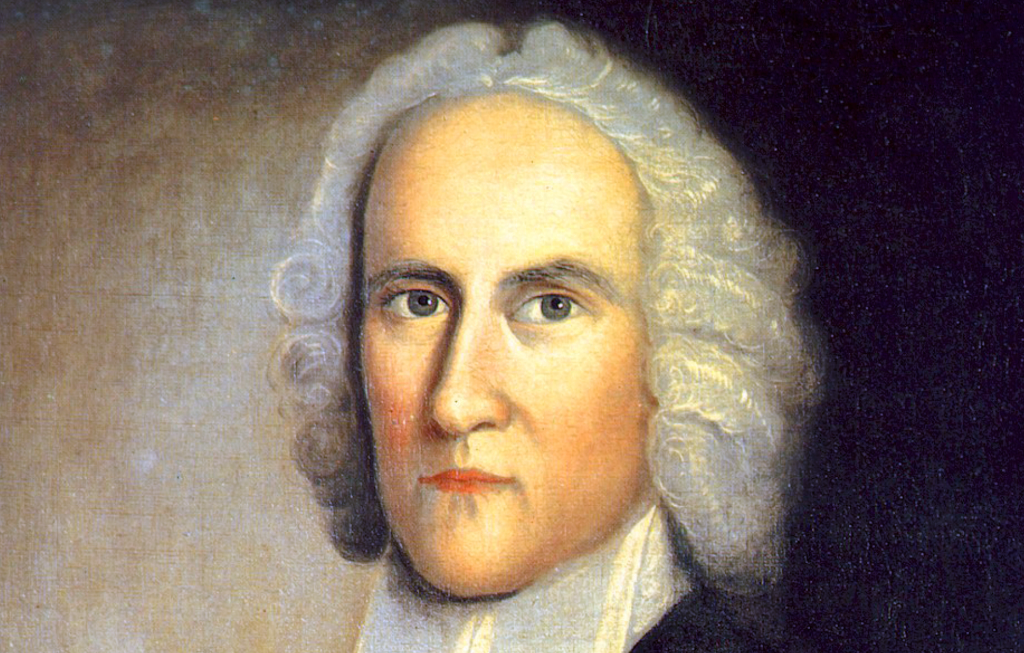

Edwards helps us sense the dynamic beauty of God at the heart of reality
George Marsden, among our most distinguished American historians, won the Bancroft Prize for his definitive biography of Jonathan Edwards (Yale University Press, 2003). Twenty years later he’s still writing about Edwards. This month features the release of his latest: An Infinite Fountain of Light: Jonathan Edwards for the Twenty-First Century (IVP Academic). After they put the book to bed, Marsden and his editor, Current contributor and InterVarsity Press associate publisher Jon Boyd, discussed further what the book has to offer.
*
Aren’t you tired of Jonathan Edwards yet? Why not?
No, for two major reasons: First, when I was in my twenties I discovered in Edwards an invigorating emphasis on the dynamic beauty of God at the heart of reality. I have always enjoyed sharing his insights with students and readers. You don’t get tired of beauty.
Second, as a biographer of Edwards, I immersed myself in understanding the intriguing world of colonial New England in its frontier days. A lot was going on at every level. It is like being engrossed in piecing together the intriguing story lines of a once-great novel of which we now have only scattered pages.
Two other people who factor into this book are Benjamin Franklin and George Whitefield (mostly in contrast to Edwards, to help us understand what was special about him). What do you think Edwards might have admired most about each of them? And what do you yourself most appreciate?
Edwards was up to date on the latest science and so must have admired Franklin for that. He also would have appreciated Franklin’s publishing and his work for the public good including his leadership in the intercolonial cause during the French and Indian Wars. Personally, in addition to the points mentioned, I appreciate his wit and his contributions to building a republic that has lasted almost two and a half centuries.
Edwards was a great fan of Whitefield and, despite a few differences, became the chief defender of the sorts of awakenings that Whitefield helped promote. I admire Whitefield as a great and pious progenitor of the evangelical religious movement in America that I have spent a lifetime studying.
What do you hope for readers to get out of An Infinite Fountain of Light?
I always feel a bit presumptuous when being prescriptive on matters of piety and religious experience, since I do not see myself as especially accomplished in these respects. So I offer these insights from Edwards in hope that they will resonate with others who likewise need and appreciate wise mentors.
You’re legendary for (among other things) your “Concluding Unscientific Postscript” to The Soul of the American University (1994) in which you brought the legitimacy and relevance of scholars’ own religious faith to the forefront. How have things changed these days?
I think the situation has improved. Even in the mainstream academy, despite hostility toward some religious views, there is greater recognition that cultural diversity needs to include religious diversity. And in the meantime, so much excellent Christian scholarship has been published in the past thirty years, including by IVP, that it is difficult to dismiss entirely.
What figure might you have chosen to study as intensively as you have Edwards — someone who could have been as rich a historical vein as he has been for you over the years?
Pascal.
Intellectual community has been important in your scholarship and career. (One of the things I love about this particular book is that it was a computer scientist, Derek Schuurman, who initially recommended that you and I talk about it.) What qualities of Edwards’s intellectual community should we most appreciate and try to cultivate ourselves?
Edwards was part of an international Reformed intellectual community that had been formidable for two centuries. It also tended toward theological rigidity and controversy. But it promoted intellectual inquiry. So it was open to the scientific revolution and was interacting with the latest European thought. I see some of Edwards’s great insights as arising from his reflections on how his impressive Reformed heritage fit with the Newtonian universe and emerging modern thought.
*
Adapted from an interview originally published in the IVP Academic catalog, Spring 2023, p. 35. Used by permission of InterVarsity Press and George Marsden.
Jon Boyd is associate publisher and academic editorial director at InterVarsity Press, the saxophonist in an improvisational rock band, a user of mechanical typewriters and postage stamps, and (with his wife and daughters) a resident of the City of Chicago.